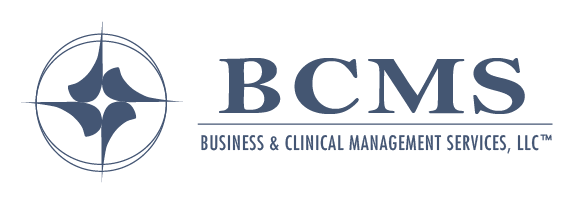As promised, we have reviewed the 2020 Physician Fee Schedule proposed by CMS. There are many complexities that we must study before we can give you all of the details. In the meantime, please consider reviewing the items (via links) listed below so you can have the information readily available. It is critical that you take the time to send your comments to CMS. The APTA has created a template to use for comments about the PTA/OTA modifier proposed methodology. The template is excellent and only requires a small amount of scripting on your part. They are drafting a template suitable for patient submission; please share it with them as Medicare beneficiaries’ comments carry a great deal of weight with regulators.
Important Links:
- PFS 2020 PFS Proposed Rules
- https://s3.amazonaws.com/public-inspection.federalregister.gov/2019-16041.pdf
-
- Telehealth pages 108-110
- Therapy KX Threshold pages 249-252
- Dry Needling CPT Code pages 300-302
- PTA/OTA Modifier Provision 252-273
- Quality Payment pages 858-1572
- PFS Conversion Factor pages 1180-1187
- 2020 PFS Fact Sheet: (Click Here)
- APTA Regulatory Issues: (Click Here)
- Template comment Letter for Clinicians Regarding the PTA/OTA Modifier Issue: (Click Here)
- CMS Site for Submitting Comments Regarding the PTA/OTA Modifier Issue. (Click Here)
KX Threshold Modifier
We mentioned, in Issue 257 of SIPA, that CMS was continuing to require the KX modifier to be affixed on claims, and now CMS via the 2020 PFS Proposed Rules is reiterating that the purpose of the KX modifier is to attest that the services provided over the annual monetary threshold (not cap) were and are medically necessary. Documentation to support medical necessity should be evidenced when the Initial Evaluation and Progress Reports are performed. The Treatment Encounter Note’s (daily note) purpose is to demonstrate that skilled services were delivered and that the units billed represent the services rendered and documented.
Please refrain from calling the KX a CAP modifier as that will give patients and others the impression that there is still a therapy cap
Physician Free Schedule Conversion Factor (CF) for 2020
CMS estimates that the 2020 conversion factor will have a slight increase over the 2019 CF ($36.0896 to $36.04). The impact estimate on therapy services will be 0% because of the mix of services adjusted positively and negatively.
Trigger Point Dry Needling—CPT Codes 205X1 and 205X2
CMS is proposing:
- A work RVU of .32 for CPT code 205X1 (needle insertion(s) without injection(s) 1 or 2 muscles with 10 minutes of intraservice work time
- A work RVU of .48 for CPT code 205X2 (needle insertion(s) without injection(s) 3 or more muscles with 15 minutes of intraservice work time
- The RUC will assign the practice expense
Merit-based Incentive Payment System
- There are changes to the PT/OT measure set planned which will include both adding and deleting measures
- MIPS Performance Threshold for eligible clinicians with a final score equaling or exceeding 45 points should result in a positive adjustment
- CMS anticipates that more clinicians will receive positive adjustments than negative adjustments
Physical Therapists Assistant & Occupational Therapy Assistant Modifiers
The following statements are facts:
- The required use of the CQ & CO modifiers will be effective January 1, 2020.
- The CQ modifier indicates that the outpatient physical therapy services were furnished in whole or in part by a physical therapist assistant.
- The CO modifier indicates that the outpatient occupational therapy services were furnished in whole or in part by an occupational therapy assistant.
- The use of the modifiers will be required for all outpatient settings that are paid under the Physician Fee Schedule, therefore, Critical Access Hospitals are excluded.
- The modifiers are not required if the OTA or PTA provides less than 10% of the total minutes for the services rendered.
- The modifiers are to be affixed on each claim line in which PTA/OTA exceeds 10% of the total minutes billed for the listed CPT code.
- The modifiers must be affixed on each claim line for services wholly furnished by PTAs or OTAs.
- The modifiers do not have to be affixed on claim lines for services wholly furnished by the Physical Therapist or Occupational Therapist.
- The applicable modifier must be utilized if the PTA/OTA furnishes services concurrently with the PT/OT, respectively, and the time exceeds 10% of the total minutes billed.
- The applicable modifier must be utilized if the PTA/OTA and PT/OT, respectively, furnish services to the same patient at different times when the PTAs/OTAs time with that patient exceeds 10% of the total time billed.
- CMS proposes to round to the nearest whole number above the 10% de minimis standard. Example: Where the total time of a service is 60 minutes, the 10 percent standard is six (6) minutes, and adding one-minute yields seven (7) minutes. Once the PTA/OTA furnishes at least 7 minutes of the service, the CQ/CO modifier is required to be added to the claim for that service. For example, when the total time for the service is 45 minutes, the 10 percent calculation would be 4.5 which would be rounded up to 5, and the PTA/OTA’s contribution would need to meet or exceed 6 minutes before the CQ/CO modifier is required to be reported on the claim
Click here to download Table 19
- Documentation requirements begin on January 1, 2020. The Treatment Encounter Note will need to include a short phrase or statement to explain why the modifier was or was not affixed on each line of service. This applies to non-time services as well. Example:
- PTAs/OTAs assist PTs/OTs to furnish services, the treatment note could state one of the following, as applicable:
- “Code 97110: CQ/CO modifier applied ‒ PTA/OTA wholly furnished”; or,
- “Code 97150: CQ/CO modifier applied ‒ PTA/OTA minutes = 15%”; or
- “Code 97530: CQ/CP modifier not applied ‒ PTA/OTA minutes less than 10% standard.”
- Services furnished exclusively by therapists without the use of PTAs/OTA, the PT/OT could note one of the following:
- “CQ/CO modifier NA”, or
- “CQ/CO modifier NA ‒ PT/OT fully furnished all services.”
- PTAs/OTAs assist PTs/OTs to furnish services, the treatment note could state one of the following, as applicable:
- For details relating to modifier calculations for evaluations, supervised modalities, group therapy, etc. please study pages 252-273 of the PFS. Links to the various documents a listed in the “A Note from Mary” section of this SIPA
BCMS highly recommends reviewing the proposed provisions noted above and the entire clinician response/comment template provided by the APTA. Without everyone’s input, this disastrous rule may become reality.
We will provide information on other matters covered in the Proposed Rules in the next issue. They are:
- Biofeedback codes
- Physiological monitoring codes
- Potential impact in 2021 if CSM increases the proposed E/M increases
If you are interested in learning more about our newsletters (SIPA – Seriously Important Practice Alerts) or subscribing, please click here.
For more information on BCMS’s services, email Alicia Nevins Mahoney at [email protected] or schedule time for a free compliance program consultation here.

